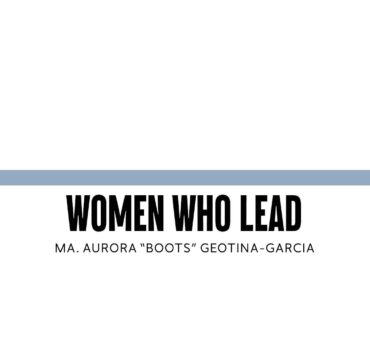Why the Philippines must prioritize its nurses

The Philippines has long been hailed as the world’s leading supplier of nurses. But while the global health system benefits from their care, the nursing crisis at home deepens. Hospitals struggle with chronic understaffing. New graduates leave within months of getting their license. Health centers in rural provinces remain understaffed.
If the Philippines were to uphold its commitment to universal health care and protect the well-being of its own people, we must start with a bold, deliberate, and evidence-based nursing workforce plan (NWP).
Crafted under the leadership of the Board of Nursing, the NWP is a timely and crucial intervention that seeks to resolve the tangled issues of supply, demand, distribution, and development of nurses across the archipelago. This plan envisions a holistic strategy—addressing not just how many nurses we produce, but where they go, how they are trained, how long they stay, and what conditions they work under.
At its core, the NWP recognizes a paradox: we have over 951,000 registered nurses, but fewer than 510,000 are active. Nurses are choosing to leave their profession for call centers, cruise ships, or foreign contracts—not because they lack dedication, but because they lack support. Low salaries, unsafe staffing levels, poor working conditions, and limited career development pathways are pushing our nurses away.
Retention begins with protection. Nurses are overworked and underpaid, often expected to serve in high-pressure environments with limited resources. They deserve fair wages, hazard pay, mental health support, and secure employment. But retention is not just about money—it’s about meaning. Career progression, access to postgraduate education, and recognition must be embedded into the plan so that nurses can grow within their profession rather than abandon it.
Distribution is another critical challenge. Urban hospitals may have better resources, but they also absorb a disproportionate share of the nursing workforce. Meanwhile, rural barangays are lucky to have one nurse covering thousands of constituents. The NWP must create incentives for equitable deployment: scholarships with return-service agreements, housing and hardship allowances, and community-based training programs that recruit from and deploy to underserved regions.
Of course, no plan for workforce development is complete without addressing education and training. We produce tens of thousands of nursing graduates annually, yet quality varies greatly between institutions. The NWP must engage with the Commission on Higher Education (CHEd), the Professional Regulation Commission (PRC), and nursing schools to ensure that all graduates meet a unified standard of excellence and are equipped with competencies relevant to today’s complex health-care landscape. From digital literacy to geriatric care, from public health to critical care, our nursing curriculum must be continuously aligned with national and global needs.
Furthermore, the NWP must treat nurses as specialized professionals. The development of nurse specialists—mental health nurses, geriatric nurses, emergency care nurses, community health nurses—must be prioritized.
The global dimension cannot be ignored. As demand for nurses rises in high-income countries, the Philippines will continue to be a prime recruitment ground. But instead of resisting migration, the NWP should manage it ethically and strategically. Bilateral agreements must be negotiated to protect migrant nurses’ rights, ensure fair wages, and encourage remittances and knowledge-sharing. Circular migration, returnee programs, and skills revalidation schemes can help turn brain drain into brain circulation.
But a nursing workforce plan cannot succeed on its own. It needs political will, interagency collaboration, and sustainable financing. The Departments of Health, and Budget and Management, CHEd, PRC, local governments, and private sector must work together, with the Board of Nursing at the helm. Stakeholder voices—especially those of frontline nurses—must be heard and respected in all stages of planning and implementation.
The potential impact of the NWP cannot be overstated. A healthy, empowered nursing workforce will improve patient outcomes, reduce health-care costs, boost public trust, and advance health equity. It will also serve as a foundation for broader health system reforms and help the country meet its commitments under the Universal Health Care Law and the Sustainable Development Goals.
This is not just a policy document but a moral imperative. Nurses are the heart of health care who have cared for the nation through disasters, pandemics, and daily emergencies. It is time we cared for them—with a real plan, real investment, and real change.
—————-
Jerome Babate, RN, MBA, PhD, LCLP and Rozzano Locsin, RN, PhD, FAAN are executive director and global adviser, respectively, of the Sydney-based Filipino Nursing Diaspora (FiND) Network. Hon. Leah Paquiz, RN, DEd is the new chair of the Philippines’ Board of Nursing and former representative of Ang Nars Party List.

















